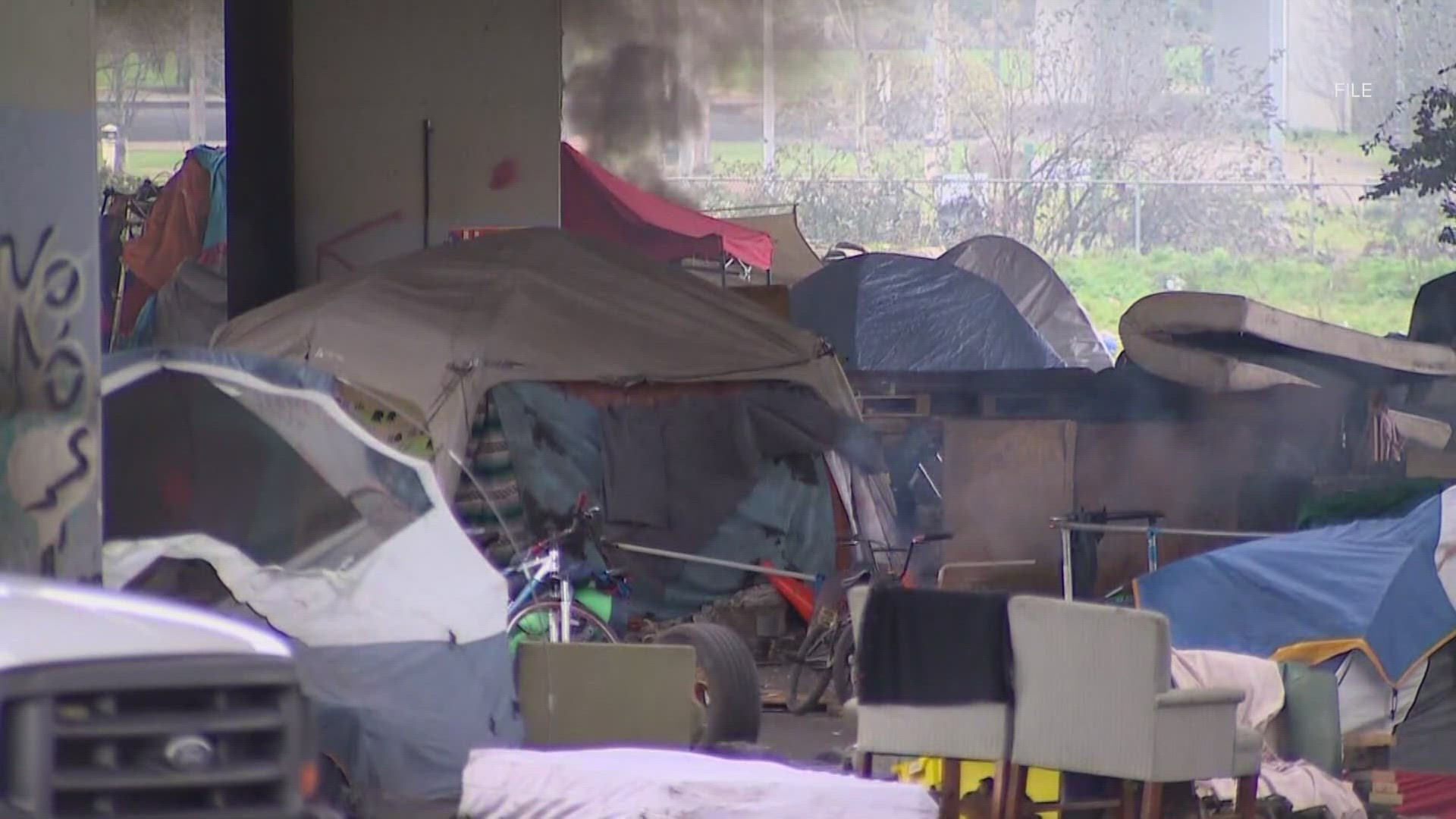SEATTLE — The King County Regional Homelessness Authority (KCRHA) announced it is "winding down" its Partnership for Zero pilot program, which was intended to try a new model for addressing unsheltered and chronic homelessness in Downtown Seattle and the Chinatown International District.
With the program coming to an end, the KCRHA officials said 38 employees are facing layoffs on Oct. 6.
The program aimed to "dramatically reduce" unsheltered homelessness in certain areas of King County. During its year-long run, the program "resolved" six long-standing encampments and housed over 230 people in Downtown Seattle and the International District.
Initial funding for the program has expired, and the agency said they and its partners "recognize that the need for unsheltered services in Downtown Seattle and the Chinatown International District is greater than the capacity for the Partnership for Zero pilot."
Moving forward, KCRHA said with limited resources at its disposal coupled with urgent needs in the community, the agency needs to focus on core functions like contracts with providers, systems administration and implementation of its five-year plan.
King County Executive Dow Constantine and Seattle Mayor Bruce Harrell said in a statement that it was a "disappointing end result" for the Partnership for Zero program. Constantine said in the coming weeks, county leaders will be meeting with program leaders and financial supporters to "understand lessons learned and how best to move forward."
“While this was a pilot, ultimately, it is a disappointing end result – for the Authority, their workers, philanthropists, and, most importantly, people living on the street unhoused downtown," Constantine and Harrell said in a joint statement. "This experience provides further confirmation of the need for the comprehensive review we launched of the organization’s governance structure, oversight, and accountability systems.
The Downtown Seattle Association (DSA) called Partnership for Zero "the right approach executed in all the wrong ways," saying it "lacked sound management, oversight and focus." The DSA called on the county to assume responsibility for the region's homelessness response "if the KCRHA isn't up to the task."
“Partnership for Zero was the right approach that was executed in all the wrong ways," DSA said in a statement. "The effort lacked sound management, oversight and focus. A year and a half after launching Partnership For Zero, KCRHA has failed to deliver on its public commitment and stated goal to engage the nearly 1,000 individuals living unsheltered in downtown Seattle and connect them to services and housing.
"If the KCRHA wants to be recognized as the leading entity of the region’s response to homelessness, it must effectively execute a strategy to reduce homelessness in downtown Seattle, the area of the region with the highest concentration of individuals experiencing homelessness. It’s unacceptable for the region’s homelessness response agency and local government to have no plan for the area with the most significant homelessness crisis. If the KCRHA isn’t up to the task, the city and county should assume responsibility and immediately and stand up a plan for downtown Seattle. The homelessness emergency and the fentanyl crisis are now fully intertwined in our community as drug overdoses became the leading cause of death among the unsheltered population in 2022. It’s more deadly than ever to be living on the streets. We face two overlapping public health emergencies, and this is the time to double down, not wind down efforts to bring people inside and off the streets of downtown Seattle.”
Harrell addressed the bombshell announcement that the KCRHA is ending the program aimed to dramatically reduce unsheltered homelessness within the county.
"They did some good work," Harrell said. "But they also have to receive the criticism that perhaps they have fallen short of the expectations of many including myself."
The agency's goal was to shelter most of the unhoused people in downtown Seattle in its first year.
That did not happen.
"It was not a mistake to create it," Harrell said. "Again, lessons learned. We'll move forward to see how the new iteration of it may be here in the near future."
KCRHA is developing 11 new positions that will be posted internally, with staff encouraged to apply.

